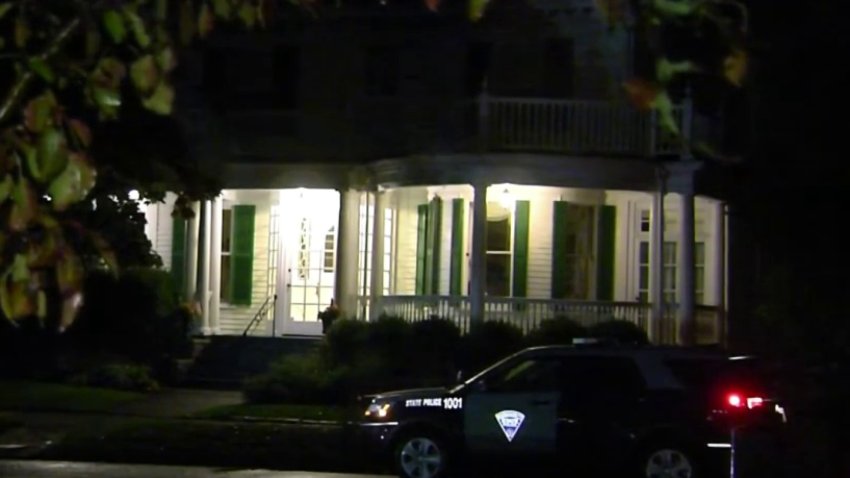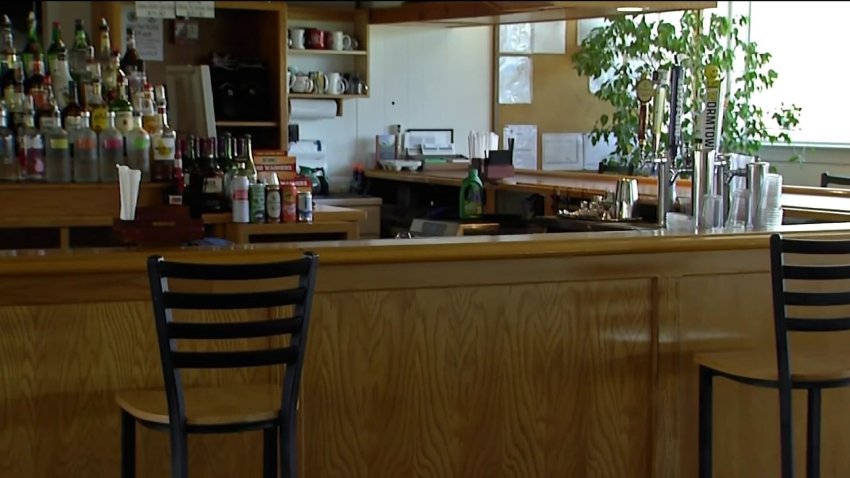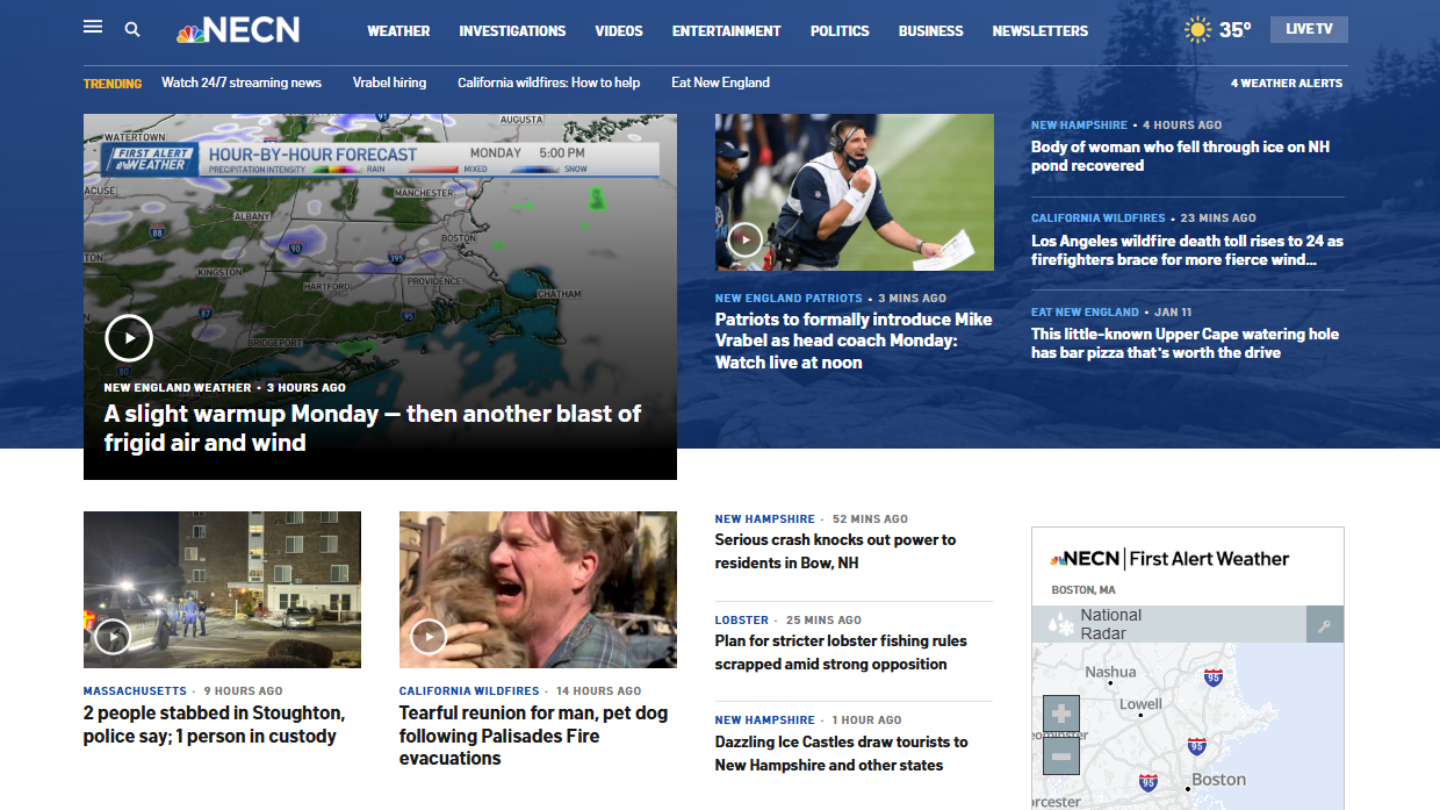Gov. Charlie Baker proposes a new budget plan that would pull $1.35B from the ‘rainy day’ fund amid COVID-19.
Armed with a spending plan buttressed by federal aid and emergency reserves, Massachusetts Gov. Charlie Baker on Wednesday announced he's taking what might be the unprecedented step of refiling an annual budget with the Legislature that proposes spending more money -- by $45.5 billion -- than he pitched in January before the COVID-19 pandemic ravaged the state's economy.
The higher bottom line obscures the fact that the administration is projecting that state tax revenues will actually be nearly $3.6 billion lower that what had been forecast just nine months ago.
Get top local stories in Boston delivered to you every morning. Sign up for NBC Boston's News Headlines newsletter.
The loss in revenue due to the pandemic is made up for in Baker's new budget with federal relief funding, including $834 million in enhanced Medicaid reimbursements, and a $1.35 billion draw from the state's reserves, which would leave the "rainy day" fund with about $2.2 billion at the end of the year.
"Thanks to our fiscally disciplined approach to budgeting over the last few years, we had a number of tools in the tool box to help us address this challenge," Baker said in a news conference at the state house.
Baker was also asked about the break-in attempt at his Swampscott home last week, which he hadn't publicly addressed since it came to light Tuesday evening.
"Everybody's safe, that's the only thing that really matters and that's all I'm going to say about it," Baker said.
Local
In-depth news coverage of the Greater Boston and New England area.

Administration and Finance Secretary Michael Heffernan said the governor's plan avoids any broad-based tax increases, layoffs or cuts to social and health safety net programs, and level funds local aid, consistent with an agreement announced with the Legislature in July.
It also would commit $100.7 million in new funding to a small business recovery programs that would invest $35 million in small business grants targeted at minority-, women- and veteran-owned businesses; $35 million for community financial institutions and $15 million for small business capital improvements.
Heffernan said the new spending plan was both "conservative" and "realistic."
Massachusetts is one of just four states in the country to not have an annual or biennial budget in place to cover fiscal year 2021 spending, though many states have said they will need to revisit those budgets.
Baker in January filed a $44.6 billion budget for fiscal 2021 based on the projection agreed to with legislators that tax revenues would grow by 2.8 percent and amount to a little more than $31.15 billion for the year.
The administration is now forecasting that tax revenues will total $27.6 billion, or $3.6 billion below those initial projections. Heffernan said that if Congress does come through with additional stimulus funding for states, the administration could look to adjust its draw on reserves.
The bulk of new new spending will be directed toward MassHealth, according to officials, who said that spending in that safety net program is projected to be up 10% and accounts for the bulk of the 3.8% overall growth in the state budget. Less than one percent of the spending growth is on non-MassHealth programs, Heffernan said.
To help offset the slowdown in tax growth, Baker is reviving his plan to increase fees on Uber, Lyft and other transportation network companies from 20 cents to $1 per ride, and has resubmitted a plan that would accelerate sales tax collections, netting the state $267 million in one-time revenue.
The sales tax acceleration plan, which has been studied and rejected in the past by the Legislature, would require companies doing more than $150,000 in annual sales to remit sales taxes from the first three weeks of the month in the final week of the same month. The administration increased the annual sales threshold by $50,000 from its original proposal to avoid hitting smaller businesses during the pandemic, Heffernan said.
The administration is alson proposing to postpone by one year the implementation of a charitable giving tax deduction worth $64 million, as well as the full implementation of the Student Opportunity Act, though Heffernan said schools are receiving a $108 million bump in Chapter 70 funding and $202 million for personal protective equipment.
Since the start of the fiscal year on July 1, the Legislature has authorized more than $21.7 billion in spending through two interim budgets, the second of which expires at the end of the month.
Heffernan said he anticipates needing to file another interim budget to give the Legislature time to review the governor's new plan, and devise and pass their own budgets.
In addition to the enhanced Medicaid payments, Heffernan said the governor's new budget relies on $422 million in Federal Emergency Management Agency funding that can be carried over from last year, $550 million from the federal Coronavirus Relief Fund that can be used within the budget and a savings of $140 million on debt service.
The administration also said he put agencies through a "low-low" exercise, asking them to find ways to live within the lower funding level of Baker's January budget or fiscal 2020, and generate $515 million in savings.
Massachusetts' budget is known for being late even before the pandemic. But the virus has upended what the state can expect coming into its coffers this year and next, while it's had to outlay millions for unexpected new costs like personal protective equipment, field hospitals and more.

While the commonwealth no longer has the highest unemployment rate in the nation, it's still among the worst, at 11.3% seasonally adjusted in August, the most recent month for which federal data is available.
Analysts have forecast that it will take a long time for the Massachusetts economy to recover from the pandemic.



